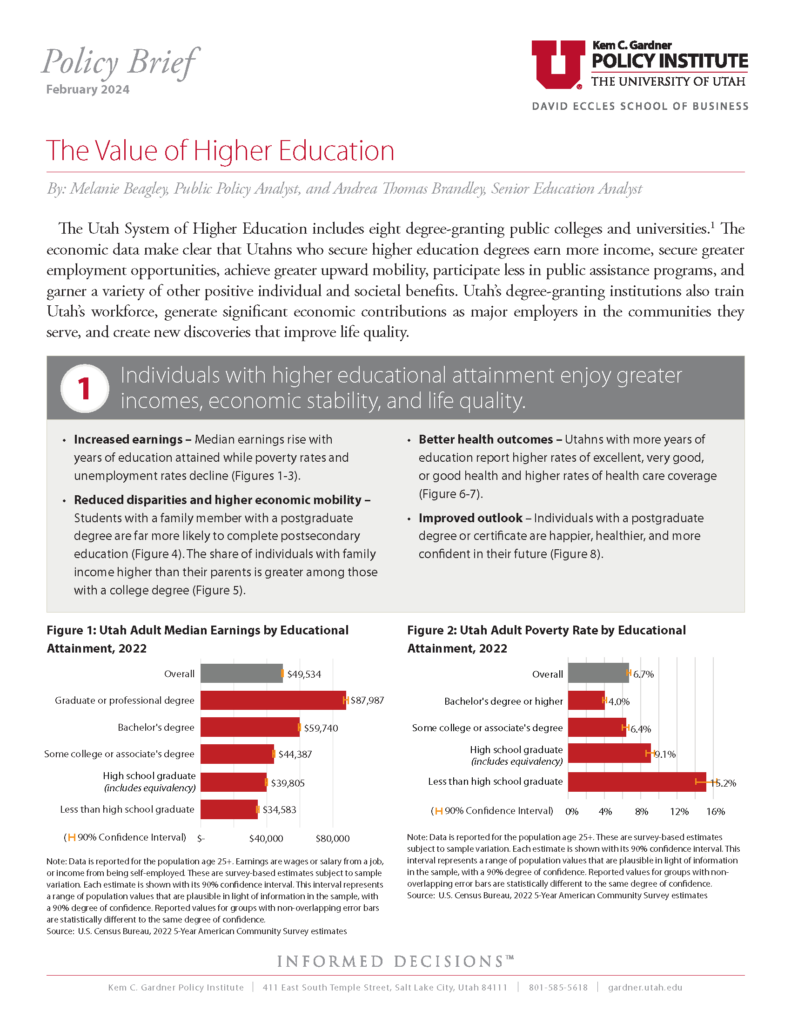The value of higher education
When speaking with your clients about 529 plans, you might have heard mixed reviews from them and their children about the importance of higher education. While economic outcomes for young adults without postsecondary degrees have improved in some cases (we’re looking at you, influencers!), there are still a lot of positives to obtaining education past high school. Let’s look at the evidence from a University of Utah policy brief to uncover key points you can make with clients if they are on the fence about the value of higher education.
First, individuals with degrees are more likely to enjoy greater incomes and greater economic stability, the brief finds. Across the country, college degrees have been correlated with higher earnings over a career — but the benefits of a degree don’t stop with financials. Reports have shown that degree holders have higher rates of both physical and mental health. Additionally, according to the U.S. Bureau of Labor Statistics, they’re also more likely to marry, and less likely to divorce.
Earning a degree isn’t just a selfish thing either: Going so far as completing a postgraduate education means that any future students in your family have a higher chance of finishing their postsecondary degree.
Building on that idea, the benefits of a degree extend beyond your relatives. Citizens with more post-high school education are more likely to become involved in their community, both as volunteers and voters. The benefits of an education can also include decreased use of public assistance by postsecondary degree holders. Getting a tertiary degree can lower the need for aid, and, in doing so, free up those resources for others in the community.
Attending an institution of higher learning can also be crucial to developing core skills that will benefit the student for their entire life. College students spend their education strengthening their communication, critical thinking, relationship building and problem solving.
College is a unique time in a student’s life, offering rare and precious opportunities to develop relationships, form unique memories and lay the groundwork for their future career. It’s a rich environment for making friends — many of whom students will keep in contact with for the rest of their lives. In a world where meeting people in person is harder than ever, an environment fostering students’ ability to form friendships is invaluable. A postsecondary education may also provide students with exciting and perspective-shifting opportunities through study abroad and humanitarian programs.
Perhaps the most valuable benefits to take from their continued education, though, is the ability to learn, train and network in their chosen field. College is a context with unparalleled opportunities for internships and research opportunities. The professional connections found at school can be essential to laying the foundation for a long and happy career.


